Final Fantasy Digital Card Game is F2P, But it's Not FFTCG -- And Would I Want It To Be?
If you know anything about me, or you just watch the Free to Play Cast, you'll know that I'm a Final Fantasy nut. Games, soundtracks, collector's items, I have a ton of it and, like any rabid fan of anything, I want it all!
This extended to the Final Fantasy Trading Card Game when it finally launched worldwide, though initially I wasn't a player. The game came out in late 2016 here in the U.S. and I had no desire to play at all ... but I did want to collect the sets. So, starting with the original Opus I set, I did exactly that. I collected a full set of at least one of each card in both standard and foil versions. Yes, for those of you that play the game this means I have a ton of cool stuff like Opus I Wave 1 prints that were later corrected or altered ... but I digress ...
This collecting continued all the way up through Opus V, with everyone in my family involved. It became something my daughter in particular loved to do -- open those packs and complete the collections! Even when we were down to the last few cards in each set, she'd rather buy a box than order the last 3 we needed ... not great on the wallet, but certainly fun memories we'll all have forever.
Shortly before the Opus VI set was to be released, one of my sons and I were looking for a new game to play. In our searching, my son said, "Daddy, we have thousands of Final Fantasy cards downstairs. I'm sure we could make good decks and learn how to play." And he was right. Inadvertently, and totally unbeknownst to me since I didn't play or track the market, we had accumulated quite the collection outside of the actual collection. Building decks wasn't an issue at all, and even building the currently competitive meta decks for all five in my household wasn't an issue given how many boxes we were buying to make the collection sets that no one is to ever touch. (Yes, this means that for even one copy of a legend card to be in a deck of any of ours, it must actually be the third copy of that legend obtained, since the first standard and foil versions went into the collection binders right from the box.)
On that note, we learned how to play the game and have been hooked both casually and competitively ever since -- and I mean all five of us, not just my son and I. My wife, daughter, two sons, and I all play and usually are all running multiple decks. It's a blast. While I'm not going to chat about the game itself in full here (shameless self plug: watch my personal YouTube channel for very in-depth learn-to-play guides once you've started) I will leave it simply at this: If you are a Magic: The Gathering fan and a Final Fantasy fan (like we are) then you really owe it to yourself to grab a starter deck and try it out. It fixes a lot of the issues Magic has (i.e., resources) and changes just enough that MtG players will pick the game up very quickly but still appreciate the unique elements of gameplay FFTCG introduces.
Square Enix: We'll get your hopes up
A few days ago, on one of the many FFTCG Facebook groups I am in, I saw that Square Enix had filed for a trademark in Japan for "Final Fantasy Digital Card Game." Naturally, this was exciting. Could FFTCG be getting a digital version? That would be awesome! Right now, the only ways to play the TCG online are unofficial. As an FFTCG fan I was excited, and so were many others.
But something bugged me right away about the filing. It wasn't for "Final Fantasy Trading Card Game Online" or "FFTCG Online" or something along those lines. My gut reaction was that if you create an online version of your card game to potentially reach more players, you brand all that together so there's no confusion. "Did you like FFTCG Online? Then you will like FFTCG in real life, go buy packs, Consumer!" The name seemed like a mistake if this was FFTCG related. Not that Square Enix hasn't made dumb decisions before, but this seemed weird.
It fixes a lot of the issues Magic has (i.e., resources) and changes just enough that MtG players will pick the game up very quickly.
So while most of the group chat was focused around people's wish lists for the digital version of their favorite TCG, my thoughts strayed more towards the idea that "This isn't going to be FFTCG. It's going to be one of their mobile games." But that didn't mean I didn't hold out a small ray of hope -- and start speculating on what I thought the online version should be.
After reaching out to my many friends at Square Enix and seeing the now-official sign up for Japan's beta of Final Fantasy Digital Card Game, it's been confirmed that this is not about FFTCG at all. Honestly, it looks like yet another mobile title cash-in -- although, admittedly, that's just a gut reaction to the screens and the limited (and translated) descriptions. Maybe I'll be wrong, but probably not. That also means I won't be interested in it at all if/when it launches outside of Japan, but if it's your type of thing, good on you, and you can sign up for beta now if you want!
At least for the moment, it looks like it's still either cardboard or unofficial digital platforms for me. But if the day comes when FFTCG does go digital, what would the damn thing look like, or what would I want it to look like? After thinking about this for a while, I've come to the thought that any new card game that wants to exist in both the physical and digital world could have a lot more challenges than other games have made it appear.
To free or not to free? That is the question
Over the last two years, there has been an explosion of digital card games. Due to the mass distribution potential (and probably due in no small part to Hearthstone's success), these titles have been pushed squarely into the free-to-play market. Most of us don't even consider a new card game's announcement as having a chance of being a buy-to-play game. Just look at the world's reaction to Valve announcing that Artifact would have a price tag way back when ... not counting how it was just generally being received anyway.
(Faeria deciding after being free-to-play to go buy-to-play was even more bizarre. But with 145 players on Steam as of this writing, I guess it didn't have much to lose.)
You have a card game (yet another one in a crowded space), most don't have a big, known IP behind them, so yeah, make it free-to-play, get the largest audience in there as possible, and start selling packs.
It certainly makes sense. You have a card game (yet another one in a crowded space), most don't have a big, known IP behind them, so yeah, make it free-to-play, get the largest audience in there as possible, and start selling packs. That totally works if you're digital only. Even well-known IPs like this and this take the same path. OK, maybe it didn't work for this game or this game, but it certainly didn't hurt!
Free-to-play makes sense for a new game coming out digitally today, but what about games that want to stretch between the digital world and the physical world? Does going free-to-play digitally make sense?
For some games in very unique positions, sure! Magic: The Gathering Arena (among many other past options) and Pokémon have such large fan bases that making the product free and selling packs in-game and in real life works for them. Brand-new games like the TCG Warhammer: Age of Sigmar Champions make it work because that was the plan from the beginning: a physical game in tandem with a digital game, where buying packs in real life and scanning them claims them to your account in the digital version of the game too.
FFTCG didn't launch that way. Many others don't either. So if you make a digital version of the game now you're in a very weird position. On one side, you'd like the digital version to help move units of the physical cards, so making the game free to get a lot of visibility could certainly help. Making it free also serves as its own advertisement because once you put the words "Final Fantasy free" on something, you've just grabbed millions of eyeballs, even if it's only for a short amount of time. The endgame becomes growing the game as a whole, something any of us in the FTTCG community would tell you we're all for and would help in any way we can.
But as one of those physical world players, would you want the game to be free-to-play? And if you are Square Enix, how do you balance out not pissing off the people that do currently play with the desire to attract more players? How do you balance the risk of a digital game for an already tiny playerbase (in comparison to other big TCGs) dividing that playerbase? "No need for me to collect and go to the Local Game Store (LGS) anymore, I'll just play online!"
And the biggest balancing issue comes in Square Enix wanting to obviously make money (nothing wrong with that!) and the pain I would feel at now having to buy real world cards and digital packs if I wanted to play both physically and digitally -- and that doesn't even speak to what I'd need to buy to play both at a competitive level sometimes.
Since Square Enix didn't launch FFTCG and a digital version at the same time -- which has always confused me since they had the Chapters series in Japan for years and decided it went well enough to close that and launch FFTCG worldwide, so how did a video game company not also say "We need a digital version alongside this" -- they can't follow the Warhammer model (which I love), at least not with the already available seven Opus sets. So what should they do ... and what would you, as an existing player, want them to do?
Square Enix, hire me to do this for you
Here's the deal: I love Final Fantasy. I've spent way more money on cardboard than I will ever admit to any of you. I run a free-to-play gaming site and have for years ... but I do not want a free-to-play FFTCG, at least not the way you see most running these days. Here is the best play for Square Enix, from my point of view:
First and foremost, come clean with your players. Is an online FFTCG something you are doing/planning to do? If not, then say so. We'll be fine, trust me. We may be disappointed, but we have ways to make that work digitally even if they aren't "ideal" for many. We'll move on and so can you. If you are working on it, don't say you aren't and have no plans to. If you aren't working on it yet but do want to expand to that in the future, say that and we'll wait a few years. Most importantly though, be honest.
If it is something you want to do or are already doing, here's how I think you monetize it to appease those that play and those that don't. Make the game free-to-play, sure. You can even put in typical pack purchases and all the usual stuff you see in something like Hearthstone or M:tG Arena. I don't care, make your money.
Adopt a system like Warhammer where I can crack a pack in real life, scan the cards, and use them in the digital version.
For future cards, adopt a system like Warhammer where I can crack a pack in real life, scan the cards, and use them in the digital version. So if the digital version comes out, link it to set launch. For example, Opus X releases alongside the digital launch and Opus X cards have the scanning feature, as do all sets after launch. Yes, we'll have to talk about scanning limits, if trading is a feature, and all of that, but that comes later.
For the cards in all previously released sets, sure make them available for purchase as packs in the game if you want. Players that want to buy a pack or two here and there, or win them by playing can do so. All existing starter decks in the physical version of the game are free digitally, though. Don't lock any of them. You want people to try those and then (hopefully) go buy them at the store. Future starter decks are the same way, always free. As an option though, offer a package -- say, $30 to unlock all cards from all sets prior to the digital launch. As an FFTCG player, I'd gladly hand you $30 to have Opus I-IX unlocked and be done. Charge more with other early access type packs that let you buy multiple copies or full playsets even. And you only have to do this at launch. Beyond that people need to buy physical copies and scan them or buy digital packs. The point being, offer launch packages but don't price yourself out of the market. As a physical player I need to not feel bad at the price since I've paid already and as a new player I have digital options to catch up.,,more importantly both types of players have "bought into" the idea of the digital versions. Now if I want to buy real cards and scan to complete Opus X, I can buy digital packs (or win them in-game) if I want to as well, but I'm not giving you cash I've given you already (which is the feeling you get when buying a digital product you already own in real life ... not to mention that I have to get "lucky" to get what I want by buying random digital packs).
See what we just did from a sales standpoint? We created a F2P economy (which you know is what Square Enix would want), but we also created a box price on a free product for those that play already to lump-sum catch up ... all for less than the cost of a single copy of a non-foil Wol.
Which brings us to the LGS
The last, and maybe more important, piece of this puzzle is how you do not divide an already small player base while your game is still growing. For that, you need to think about things from multiple viewpoints. Complimentary digital products should do just that: compliment. Physical and digital need to work in tandem. Because FFTCG isn't in the big-box stores, the LGS is your most valuable resource after your players. Don't screw this up for them. Prize out both ways. In physical organized play kits, toss in codes for things in the digital version of the game. Conversely, in the digital game, prize out your "Arenas" or whatever you decide to call them with physical goods, shipped for free to the LGS they choose or shipped home for a fee. Encourage that traffic, get butts into seats, get people buying into both products. Online is nice, but players know they have to make compromises in timing, responses, and other actions to make the medium work. There simply isn't a replacement for sitting down at an LGS with friends and playing. We want both.
After it's all done, it can be done even after the physical game has launched and not be painful for one side or the other, but at the end of the day I'm just a fan and a consumer who one day wants to be at a table with MrCool, so what do I know?
If, by chance, you've read this long and you haven't played in real life, do so! Yeah, you'll probably meet a few weird people along the way, but no more than any other hobby -- and the ones you eventually call friends are well worth it.
Related Articles
About the Author

Mike “Magicman” Byrne has been a part of the MMOBomb family for years and serves as the site’s current Editor-in-Chief. His love for MMOs and gaming in general has led him to covering games for numerous gaming websites including Gamebreaker TV and XIV Nation where he proudly displays his fanboy flag for FFXIV:ARR.
More Stories by Michael ByrneRead Next
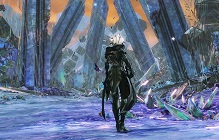
The Holiday season might have slightly delayed the latest Living Story addition to Guild Wars 2, All Or Nothing, but it will soon be live in all of its shiny glory for everyone to enjoy.
You May Enjoy

If you’ve been wondering who this Durin kid is, this is your answer.

The content update is already available to players.

Nothing says holidays like a snowball fight in Crucible.

Despite the name, this granary is far from normal.
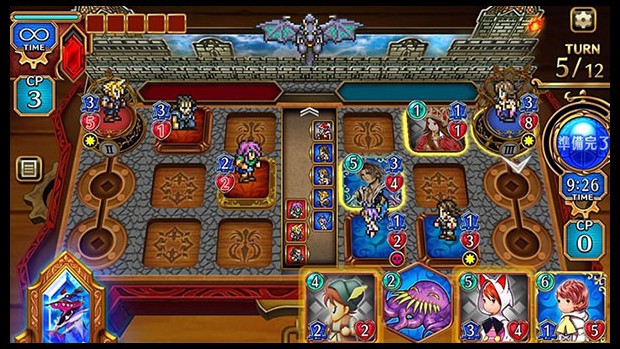
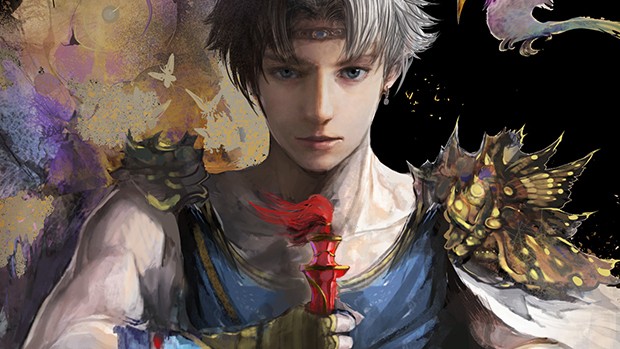
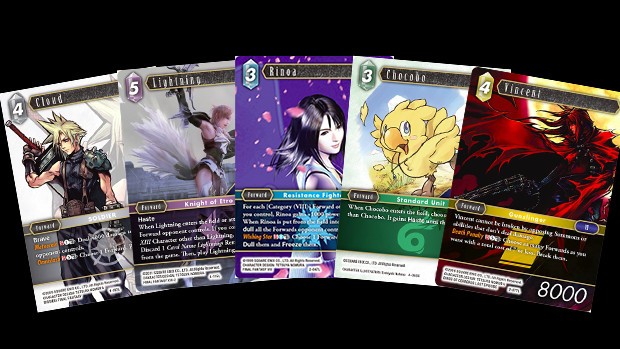
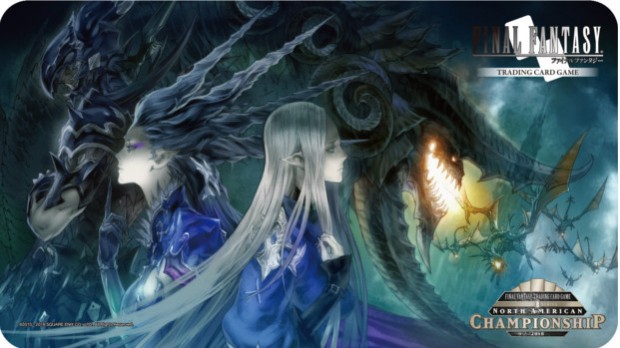
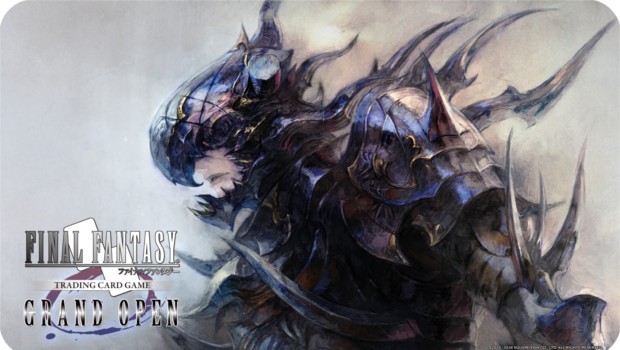
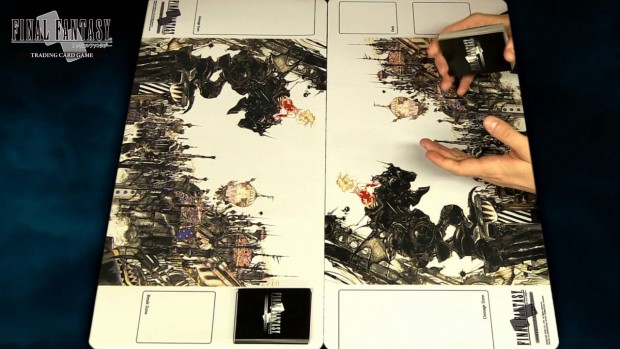
And for kids, gaming is a dam good modern literature + motor skilled learning tool.